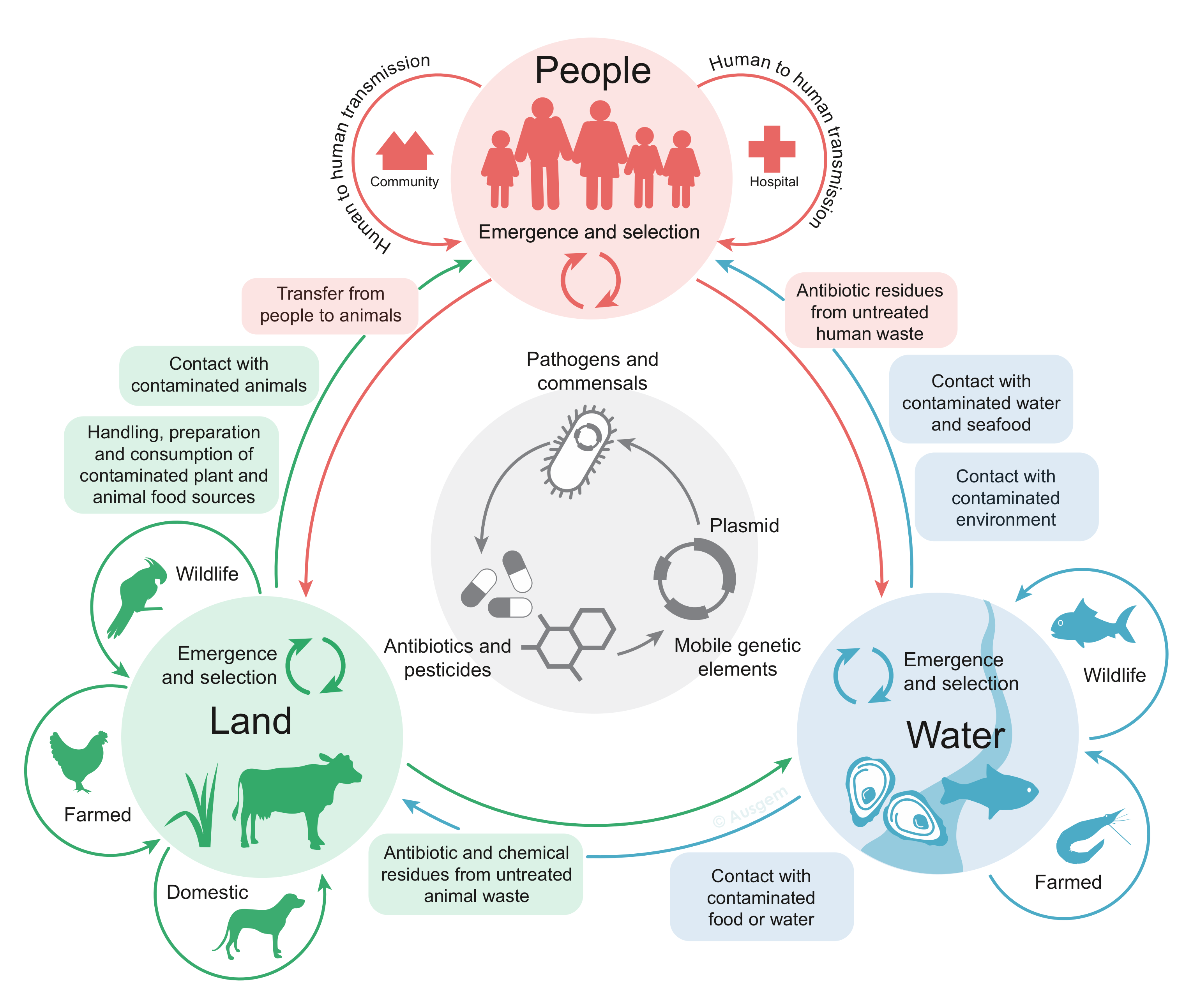Our approach
Through a ‘One Health’ approach, AusGEM research focuses on pathogen evolution and transmission in plants, animals, and humans, and uses the latest sequencing technologies, proteomics, and bioinformatics.AusGEM leverages the combined skills, knowledge, and facilities of the Elizabeth Macarthur Agricultural Institute (EMAI) and the Australian Institute for Microbiology & Infection (AIMI).
Based at the University of Technology Sydney, AIMI’s team of scientists focus on discovery and applied research to build an understanding of how microbes grow, live, adapt and survive. The EMAI – the NSW government’s premier quarantine and biosecurity facility – protects Australia’s economy, community and environment by monitoring the disease status of the state’s primary industries and providing certification for freedom from specific diseases.
Through our collaboration, AusGEM is working to develop predictive, diagnostic, and prevention frameworks for managing infectious disease and resistance processes and pathways, taking a ‘One Health’ approach that draws on:
- High-throughput genome sequencing
- Microbial imaging facility with super resolution instruments
- Mass spectrometry facility with proficiency in biological applications
- Bioinformatics specialists
- High bio-containment laboratory and animal and plant facilities
- ISO and NATA accredited diagnostic laboratories
- Archived collections of significant pests and pathogens
- Emergency response and surge capacity.
Through strong partnerships and advanced technology sharing, our approach supports:
Development of fast-track identification systems to diagnose and better treat disease in plants, animals, and humans
Understanding of antibiotic resistance and its spread to support future research into alternative disease management solutions
Information sharing across national and international research centres to support global biosecurity efforts and protect our planet’s resources.
A connected systems-based approach
AusGEM uses a ‘One Health’ genomic epidemiological approach that recognises the fundamental interconnectedness of people, animals, plants, and their shared environment.

By drawing on information on past outbreaks alongside discovering new pathogens, we’re working to achieve optimal health outcomes and better manage emerging infectious plant, zoonotic, vector-borne, and food-borne disease, and to address public health issues including antimicrobial resistance (AMR).
Our research is supported by collaboration with nationwide and international infectious disease research networks.
